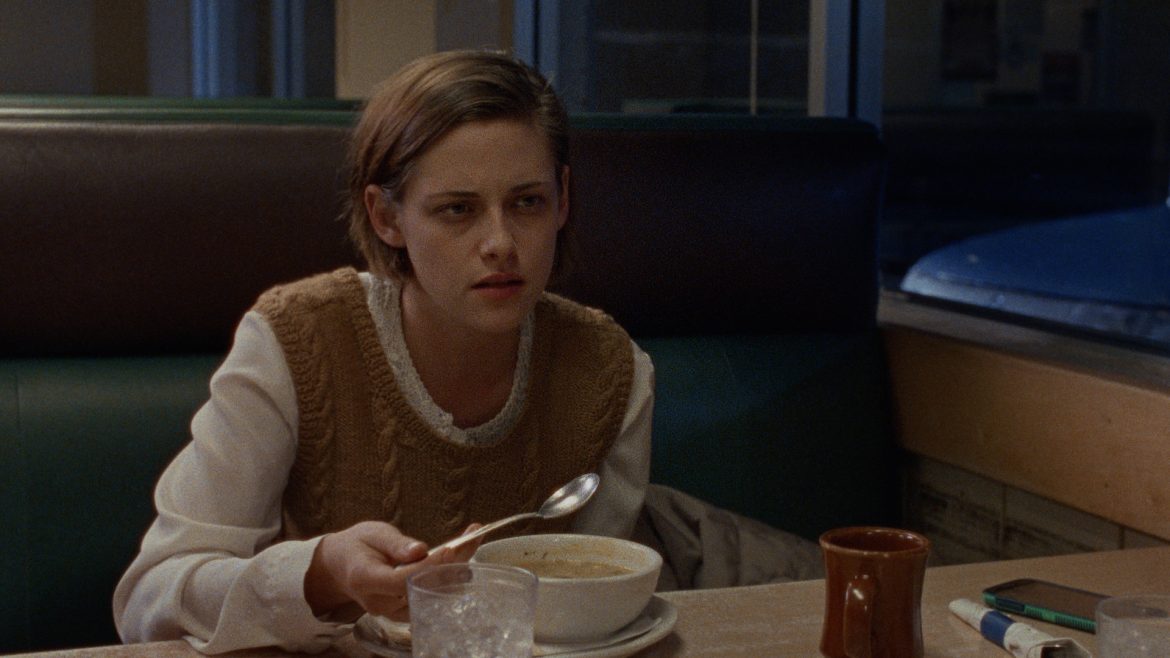Laura is an attorney balancing the expected demands of her practice with the more unreasonable ones foisted on her by a demanding client. Gina seeks to build a dream house in the woods, while contending with a resentful daughter and a placating husband who always makes her the bad guy. Jamie is friendless and vulnerable, caring for horses on a lonely ranch while auditing a class on School Law, seemingly less as a means of education than human connection. These are the Certain Women of Kelly Reichardt’s new film, a typically quiet, elliptical mood piece from one of our most uncompromising working filmmakers.
Based on the short stories of Maile Meloy, Certain Women fits snugly into Reichardt’s body of work. Fans of Night Moves, Meek’s Cutoff, Wendy and Lucy, and Old Joy will be unsurprised to find her newest film both requires and rewards patience. Reichardt doesn’t traffic in explosions (even in Night Moves, a film about blowing up a dam). Her films prefer the sidelong glance, the awkward or passionate silence, the resonant images of things that go unsaid.
This makes the Montana-based triptych of Certain Women nearly ideal. Reichardt’s interior geographies map perfectly onto the landscape these characters inhabit, all big skies, distant Rockies, cold morning smoke breaks, ATVs distributing hay while horse hooves clank on ice, near-silent motel room trysts, gaudy shopping mall contradictions. The sense of place is palpable. These women could be nowhere else than here.
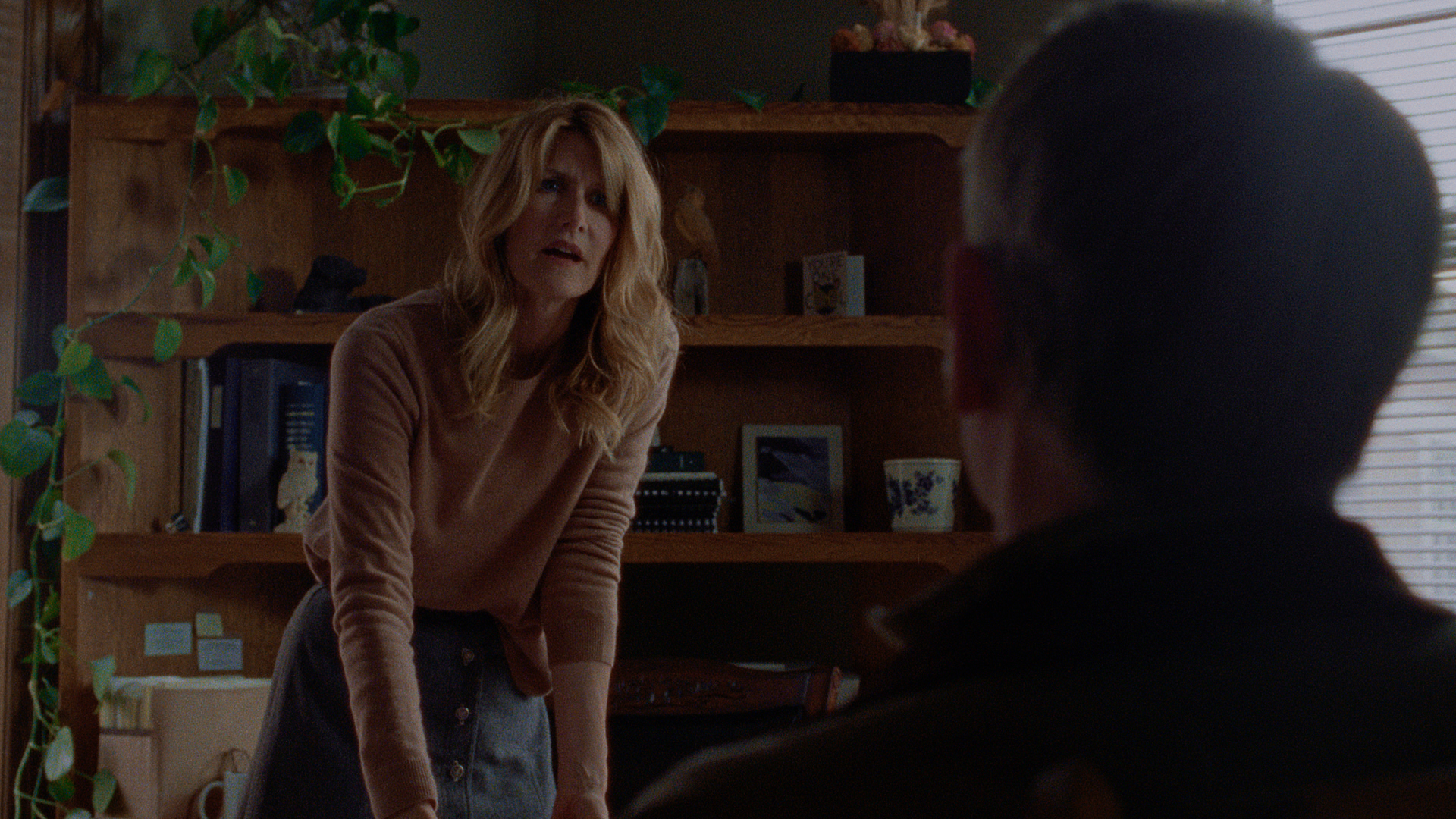
The stories vary in emotional impact, and only briefly, tangentially intersect. Laura (Laura Dern) is exasperated with Mr. Fuller (Jared Harris), a worker injured on the job who made the mistake of accepting a settlement but insists he’s entitled to more than he got. Eight months of apologetically informing him he has no case are shrugged off until a male colleague informs him of the same. In Reichardt’s entirely offhand, and therefore deeply felt, feminist dialog, Laura can only sigh, “I wish I were a man. It would be so much more restful.”
We’re introduced to Laura as she wakes up in a frigid Livingston motel room with Ryan (James Le Gros). Their nudity and soft touches imply this isn’t the first time, but their division in the frame – separated here by a wall, there by a mirror – argue it might be the last.
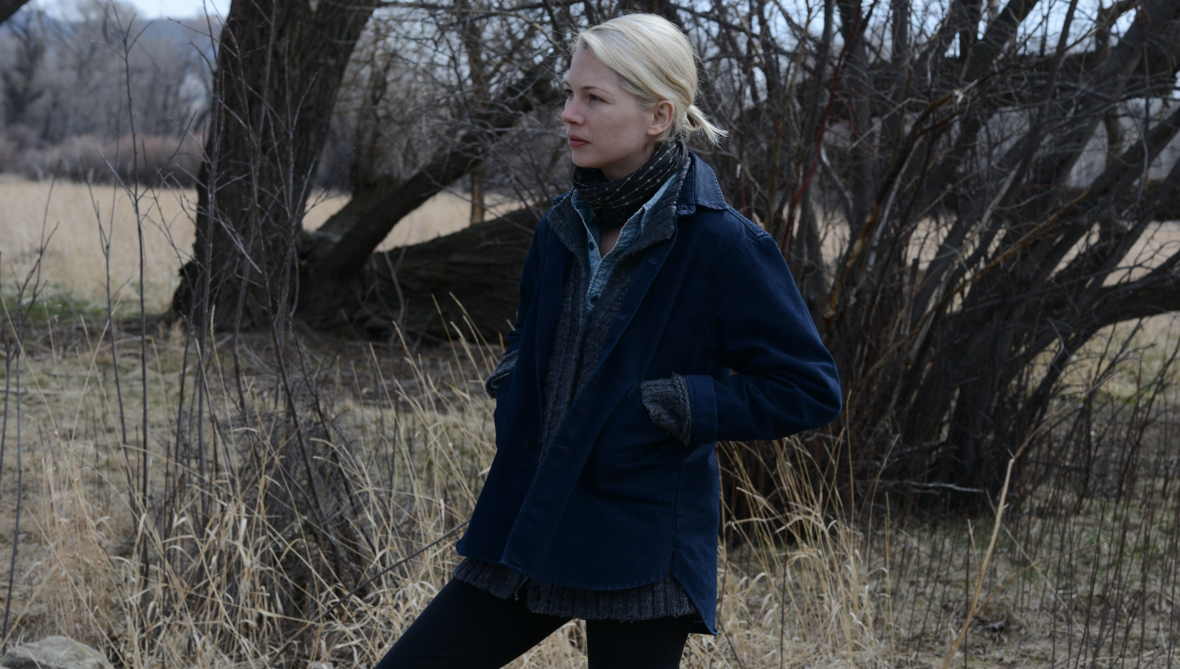
And indeed, Ryan is married to Gina (Reichardt regular Michelle Williams), if not happily then at least not miserably. The two are building a house, camping on the plot they own, demarcated with stakes for future structures. Like everyone else, they are stuck in between. Gina wants some sandstone from a neighboring property, but its owner (Rene Auberjonois) is aging, perhaps with dementia setting in, and no one feels particularly great about the transaction. This is what counts as drama in the world of Kelly Reichardt.
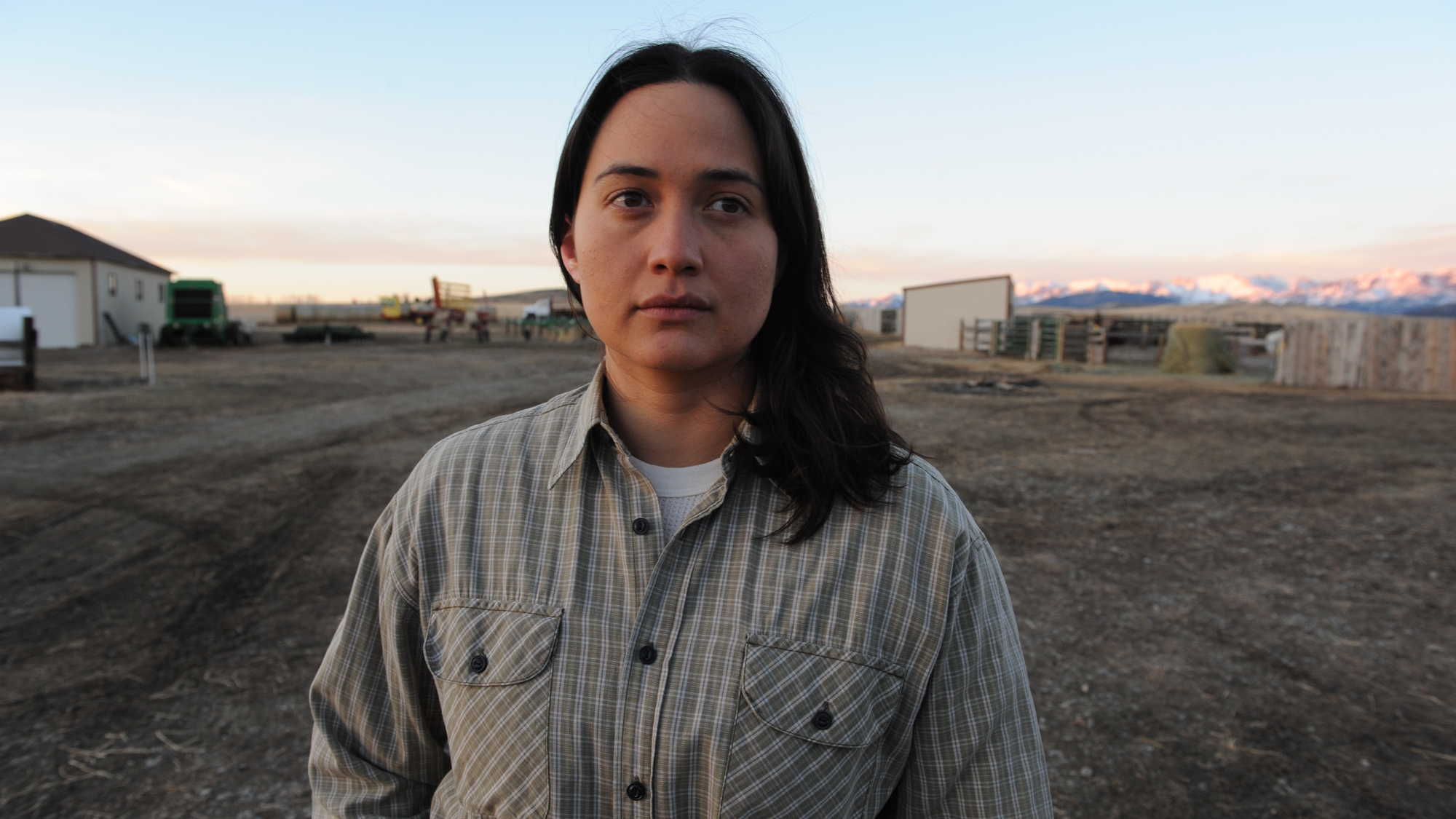
Unconnected to all of this, Jamie (Lily Gladstone, a relative newcomer effortlessly stealing the entire film) cares for horses in a deep rural area, hours from the urbanity of town – meaning Livingston. (One of the great, quiet jokes of Certain Women is that Livingston represents the center of bustling activity and cosmopolitan life. Not Missoula or Billings or Helena or Bozeman or Butte or Great Falls. Livingston.)
As played by Gladstone, Jamie is a gentle soul, more at home with horses than people but longing for something – who can say what. (The film sure won’t.) When Beth Travis (Kristen Stewart), another Livingston denizen, comes to town to teach a class on School Law to locals (each of whom raise questions obviously more relevant to their small town than a law seminar, and probably more answerable by their union than the barely qualified Beth), Jamie starts attending.
Why? “I saw people come in,” Jamie shrugs.
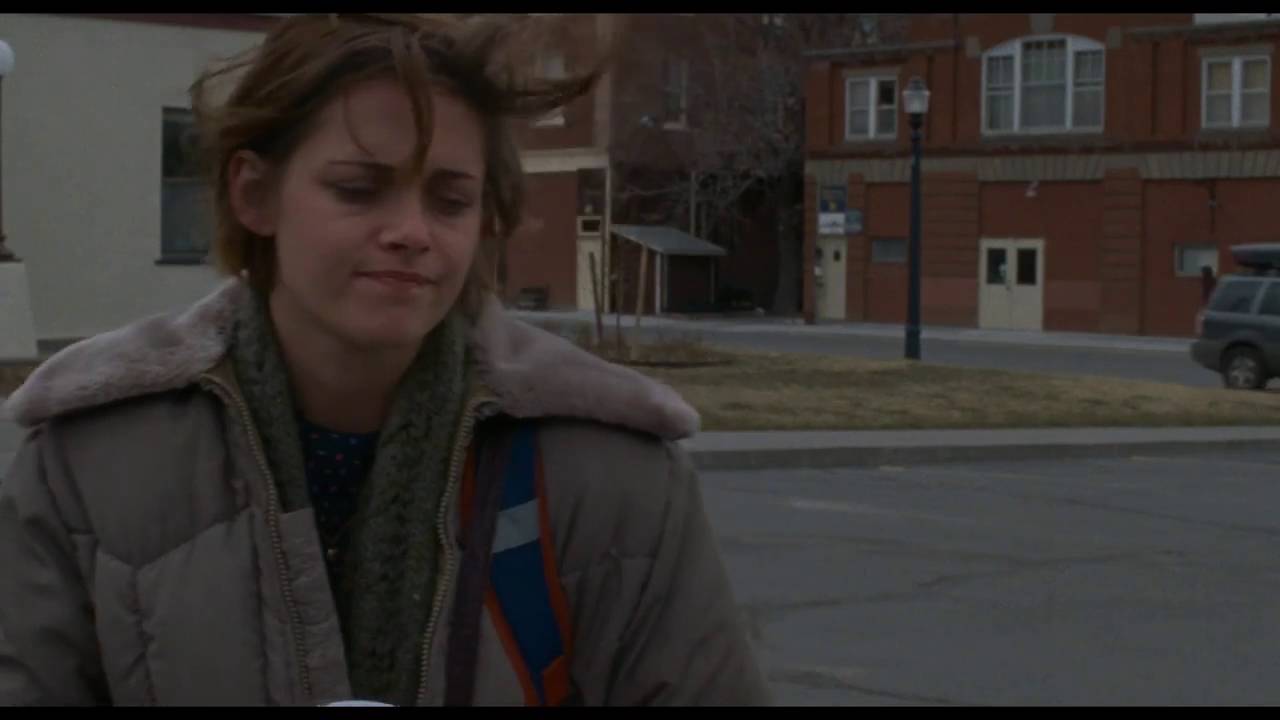
The heartache and longing that transpires in the Jamie segments should be experienced rather than explained. We find ourselves in a love story of sorts, but not the kind you might expect. Unrequited, impossible, entirely awkward and entirely understandable, it’s the maximum outreach of self-restricted desire, met with gentle puzzlement. It could be heartbreaking, but the horses need feeding in the morning, and the snow is starting again, and there’s work to do back in the office.
This is Reichardt’s specialty, aided not just by the revelatory Gladstone but the entire cast. (Special mention should go to Kristen Stewart, conveying at least five different emotions in a single expression, and Auberjonois, so memorable as the devious Sheehan in McCabe and Mrs. Miller). But the film’s focus is on the central triad of women, as it should be. Embodying varying forms of care, for self and for others, the women of Certain Women are sketched in neutral, ambiguous tones. Their complexity is evident: they have singular histories and are headed to unspecified futures. But, as in all Reichardt’s films, we encounter these characters halfway between here and there. If most contemporary films chart a narrative race from start to finish, Reichardt is the poet of the mid-stride.
The luminous cinematography, shot on Super 16mm by Christopher Blauvelt, goes out of its way to avoid beauty for beauty’s sake, despite the unusual clarity of its images and the occasional, impossibly pretty halos of light on snow and faces. The temptation to drape everything in Montana’s natural splendor must’ve been strong. Instead, we are immersed in a world of people, animals, snow, clouds, damp rooms, long moments held in intimate mid-shot.
There is no one working right now who could’ve made this film beside Kelly Reichardt. It’s too quiet, too assured, and too honest. Certain Women likely won’t convince skeptics of a certain variety of slow film to reconsider. To everyone else, it’s another gift from one of our most personal auteurs.

